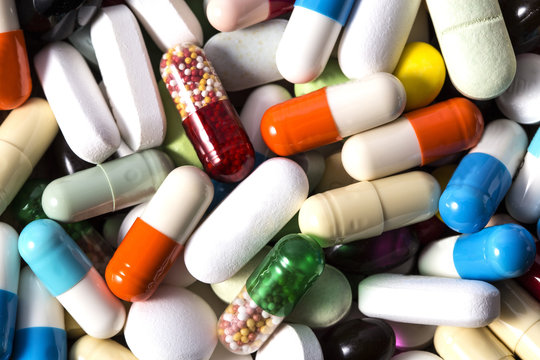Tablets sildenafil have become a widely recognized solution for managing erectile dysfunction (ED), a condition that affects millions of men worldwide. While this medication has shown remarkable effectiveness in improving sexual health, it’s crucial to understand what it is, how it works, the proper usage, and the potential risks involved. This comprehensive guide covers everything you need to know before considering tablets sildenafil as a treatment option.
What are Tablets Sildenafil?
Tablets sildenafil refer to the oral form of the drug sildenafil citrate, a phosphodiesterase type 5 (PDE5) inhibitor. This compound was originally developed to treat cardiovascular conditions such as angina but was later found to have a significant impact on erectile function. As a result, it was rebranded and approved for the treatment of ED under various commercial names, the most famous being Viagra.
Sildenafil works by increasing blood flow to specific areas of the body. In the case of erectile dysfunction, it enhances blood flow to the penis during sexual arousal, allowing a man to achieve and maintain an erection. It’s important to note that sexual stimulation is still required for the medication to be effective—it does not cause an erection on its own.
How Tablets Sildenafil Work in the Body
The mechanism of tablets sildenafil is based on inhibiting the enzyme PDE5, which is responsible for breaking down cGMP, a chemical that promotes relaxation of smooth muscle and increased blood flow. By preventing the degradation of cGMP, sildenafil allows blood vessels in the penis to stay relaxed longer, supporting stronger and more sustained erections.
The medication typically takes effect within 30 to 60 minutes after ingestion and can last for up to four to six hours. However, the duration and effectiveness may vary depending on factors such as age, metabolism, and the presence of underlying health conditions.
Who Can Take Tablets Sildenafil
Tablets sildenafil are generally prescribed to adult men who are experiencing difficulty in achieving or maintaining erections sufficient for sexual activity. However, not everyone is a suitable candidate. Men with certain medical conditions or those taking specific medications should avoid sildenafil. These include:
- Men taking nitrates for chest pain or heart problems
- Individuals with severe liver or kidney disease
- Patients with low blood pressure or a recent history of stroke or heart attack
- Those with inherited eye conditions such as retinitis pigmentosa
Always consult with a healthcare provider before beginning treatment with tablets sildenafil to ensure it is safe based on your individual health profile.
Dosage and Administration Guidelines
Tablets sildenafil are typically available in several dosages, including 25 mg, 50 mg, and 100 mg. Most healthcare providers recommend starting with a 50 mg dose, taken about one hour before sexual activity. Depending on effectiveness and tolerance, the dosage may be increased to 100 mg or decreased to 25 mg.
The medication should be taken on an empty stomach for optimal absorption, although it can be taken with food. However, high-fat meals may delay its effectiveness. Do not take more than one tablet within a 24-hour period.
It is also essential to avoid combining sildenafil with other ED medications, as this can increase the risk of adverse effects.
Benefits of Using Tablets Sildenafil
The primary benefit of tablets sildenafil is the restoration of sexual function. For men with ED, this can have a profound impact on quality of life, self-esteem, and intimate relationships. Other notable benefits include:
- Fast onset of action (30-60 minutes)
- Predictable and consistent results
- Relatively few side effects for most users
- Can be used as needed without daily dosing
Moreover, some studies suggest that sildenafil may offer additional health benefits, such as improved endothelial function and potential cardiovascular advantages, though more research is needed to confirm these effects.
Possible Side Effects and Risks
Like any medication, tablets sildenafil come with potential side effects. Most are mild to moderate and temporary, including:
- Headache
- Flushing
- Nasal congestion
- Indigestion
- Dizziness
- Vision changes, such as a blue tint or blurred vision
Rare but serious side effects include prolonged erections (priapism), sudden hearing loss, or chest pain. If any of these occur, medical attention should be sought immediately.
Sildenafil can also interact with other medications, including blood pressure drugs, antifungals, and HIV protease inhibitors. These interactions can increase the risk of side effects or reduce the drug’s effectiveness.
Precautions Before Taking Tablets Sildenafil
Before using tablets sildenafil, a complete health assessment by a physician is essential. This includes a review of cardiovascular health, current medications, and any history of allergic reactions to similar drugs. Inform your doctor of any other health concerns, such as diabetes, liver issues, or anatomical deformities of the penis.
Avoid consuming large amounts of alcohol when taking sildenafil, as alcohol can impair your ability to get an erection and may increase the likelihood of side effects. Grapefruit and grapefruit juice should also be avoided, as they can interfere with the metabolism of the drug.
Lifestyle Considerations and ED
While tablets sildenafil can effectively treat the symptoms of erectile dysfunction, they do not address the root causes. ED can result from various physical, psychological, and lifestyle factors. Conditions like obesity, smoking, high blood pressure, and chronic stress can contribute to poor sexual health. Therefore, a comprehensive treatment approach should include lifestyle modifications such as:
- Regular physical exercise
- A healthy, balanced diet
- Quitting smoking and reducing alcohol intake
- Managing stress through therapy or relaxation techniques
- Maintaining open communication with your partner
These changes can significantly enhance the effectiveness of tablets sildenafil and lead to long-term improvements in erectile function.
Alternative Treatments to Consider
In some cases, tablets sildenafil may not be suitable or effective. In such situations, other treatment options may be explored, including:
- Other oral medications like tadalafil or vardenafil
- Vacuum erection devices (VEDs)
- Penile injections or suppositories
- Testosterone replacement therapy (if low levels are detected)
- Psychological counseling for anxiety or relationship issues
It’s important to work closely with a healthcare provider to determine the best course of treatment tailored to your specific needs.
Conclusion
Tablets sildenafil offer a highly effective and widely used solution for men experiencing erectile dysfunction. However, like all medications, they should be used responsibly and under the guidance of a medical professional. Understanding how they work, potential side effects, and lifestyle factors can help maximize their benefits while minimizing risks. With proper use, tablets sildenafil can significantly enhance sexual health and overall well-being, restoring confidence and intimacy for countless men around the world.


